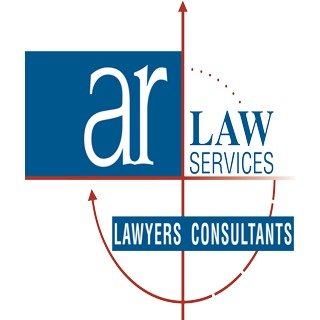Best Civil & Human Rights Lawyers in Australia
Share your needs with us, get contacted by law firms.
Free. Takes 2 min.
Or refine your search by selecting a city:
List of the best lawyers in Australia
About Civil & Human Rights Law in Australia
Civil and human rights law in Australia is centered on protecting the fundamental rights and freedoms of individuals. Australia's legal framework is designed to uphold international human rights standards through local legislation, policies, and institutions. The Australian Human Rights Commission plays a significant role in promoting and ensuring these rights. Key areas include the right to equality, freedom from discrimination, and protection from human rights abuses.
Why You May Need a Lawyer
There are several situations where individuals in Australia may require legal assistance related to civil and human rights:
- Experiencing discrimination in employment, housing, or education.
- Facing wrongful detention or violation of personal liberty.
- Issues related to freedom of speech and expression.
- Needing protection from racial or religious vilification.
- Encountering breaches of privacy or confidentiality.
- Seeking remedies for human rights abuses by a government or organization.
- Assisting in the defense of individuals accused of civil rights violations.
- Representation in human rights commission hearings or tribunal cases.
Local Laws Overview
Australia's civil and human rights laws are influenced by both federal and state legislation. Some key laws include:
- The Racial Discrimination Act 1975 - prohibits discrimination based on race, color, descent, or national or ethnic origin.
- The Sex Discrimination Act 1984 - addresses discrimination related to sex, marital status, pregnancy, and family responsibilities.
- The Disability Discrimination Act 1992 - seeks to eliminate discrimination against individuals with disabilities.
- The Australian Human Rights Commission Act 1986 - establishes the Australian Human Rights Commission and outlines its functions.
Frequently Asked Questions
What are civil rights?
Civil rights are protections and privileges given to all citizens by law, ensuring freedom from discrimination and guaranteeing equal treatment.
How do human rights differ from civil rights?
Human rights are universal rights inherent to all human beings, whereas civil rights are granted by a legal system and can vary between countries.
Who enforces civil and human rights in Australia?
The Australian Human Rights Commission is primarily responsible for promoting and protecting human rights within the country.
What should I do if I experience discrimination at work?
You can file a complaint with the Australian Human Rights Commission or seek advice from a lawyer specializing in employment discrimination.
Is hate speech illegal in Australia?
Hate speech is not illegal per se, but inciting violence or hatred based on race, religion, or other factors can be prosecuted under existing laws.
Can I represent myself in a human rights tribunal?
Yes, you can represent yourself, but having legal counsel can be beneficial owing to the complexity of cases and procedures involved.
Are there any costs involved in filing a human rights complaint?
Filing a complaint with the Australian Human Rights Commission is generally free, but legal representation may incur costs.
What is the time limit for filing a discrimination complaint?
Complaints should typically be filed within 60 days, but exceptions may apply in certain circumstances.
Can organizations also be held accountable for human rights violations?
Yes, organizations, including businesses and government entities, can be held accountable for violating human rights laws in Australia.
What is the role of an ombudsman in civil rights protection?
An ombudsman investigates complaints against government agencies and works to resolve issues relating to civil rights and public administration.
Additional Resources
For further assistance, consider the following resources:
- The Australian Human Rights Commission for complaints and educational resources.
- State and territory anti-discrimination bodies for local issues.
- Legal Aid offices in your area for free or low-cost legal services.
- Community legal centers specializing in civil and human rights.
Next Steps
If you need legal assistance in civil and human rights, consider the following steps:
- Identify your immediate needs and gather relevant documentation and evidence.
- Research and contact a specialized lawyer or legal service that can support your specific case.
- Consult the Australian Human Rights Commission or local bodies for guidance on lodging complaints.
- Prepare for any legal proceedings by understanding your rights, the relevant laws, and procedural steps involved.
Lawzana helps you find the best lawyers and law firms in Australia through a curated and pre-screened list of qualified legal professionals. Our platform offers rankings and detailed profiles of attorneys and law firms, allowing you to compare based on practice areas, including Civil & Human Rights, experience, and client feedback.
Each profile includes a description of the firm's areas of practice, client reviews, team members and partners, year of establishment, spoken languages, office locations, contact information, social media presence, and any published articles or resources. Most firms on our platform speak English and are experienced in both local and international legal matters.
Get a quote from top-rated law firms in Australia — quickly, securely, and without unnecessary hassle.
Disclaimer:
The information provided on this page is for general informational purposes only and does not constitute legal advice. While we strive to ensure the accuracy and relevance of the content, legal information may change over time, and interpretations of the law can vary. You should always consult with a qualified legal professional for advice specific to your situation.
We disclaim all liability for actions taken or not taken based on the content of this page. If you believe any information is incorrect or outdated, please contact us, and we will review and update it where appropriate.
Browse civil & human rights law firms by service in Australia
Australia Attorneys in related practice areas.
Browse civil & human rights law firms by city in Australia
Refine your search by selecting a city.









